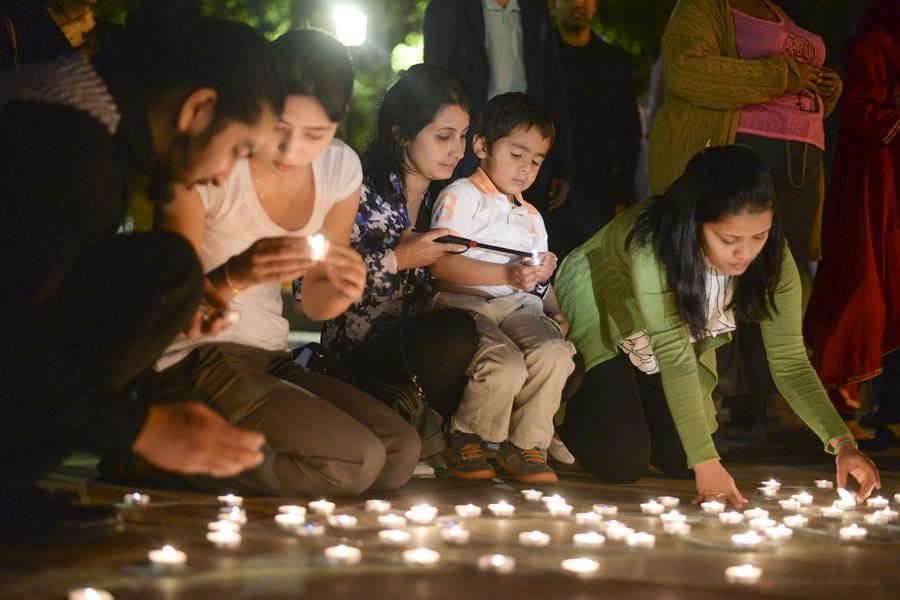Nepalese students Saroj Dhital and Raghav Poudyal, along with other members of the MU Nepalese Student Association, have made progress in [their efforts since last April](https://www.themaneater.com/stories/2015/5/5/nepalese-student-association-comes-together-raise-/) to show their support for Nepal after a deadly 7.8 magnitude earthquake hit the country on April 25.
They have raised about $8,000 so far, but they’re not finished yet, Dhital said.
“We’re pretty happy with what we’ve done so far,” Poudyal said. “We’ve even got thank you notes from the victims who really appreciated getting food, medicine and shelter, too, in some cases. Part of our fund was also used to renovate a school that was lost during the earthquake, so the students were quite happy to get back to school.”
They split their fundraising into two parts: The first part was to help provide immediate resources such as food and water, and the second part is to provide funds to build long-term shelters.
“Hopefully in the future we can get some more money to donate,” Dhital said. “As of right now, we’re all pretty satisfied with what we have.”
The work they’ve done has not only affected those in Nepal, but also those who are participating in the fundraising.
“It was really cool to see people from Japan, the United States and other countries help us with our fundraising efforts,” Poudyal said. “It sort of makes you feel like you’re part of a big family that is not really divided by borders of countries.”
The Nepalese Student Association is taking a slight break from their fundraising over the summer as most of their group members have left school for the summer. They will continue working toward their goal of raising $10,000 in the upcoming fall semester, Dhital said.
The group also wasn’t the only ones who started fundraising after the earthquake. MU graduate Amy Wansing was in Nepal at the time of the disaster, and she said she raised more than $6,000 and has helped over 300 families in three districts.
With the help of a friend she was traveling with and a local pharmacist, she made sure the necessary supplies arrived in small villages around Nepal that hadn’t seen any previous help from the military or other natural disaster relief organizations.
“Most of the contribution from foreign countries was located in the capital,” Wansing said.
For this reason, she liked working with the smaller villages.
“I think that (it is) really important to let them know that they’re cared about also,” Wansing said. “What we saw being most impactful were just individuals, both foreigners and locals working together who weren’t affiliated with anybody else.”
Part of the reason they were so successful is because 93 percent of the donations they received went directly toward buying the supplies necessary to help, Wansing said. Their main goal was to spend the money they received right away and have no overhead, and they did just that.
“I feel grateful I was there, as odd as that sounds,” Wansing said.
After experiencing Nepal for herself, Wansing encourages others to see it for themselves.
“It is just one of the kindest, most open-hearted places I’ve ever been to and I would love for other people to get to experience that,” Wansing said. “The beauty of the Himalayas is one of the most beautiful places in the world and I think it’s less known. Not as many people travel there. I just hope after my experience I can encourage other people to be able to experience the magic that I was able to there.”






